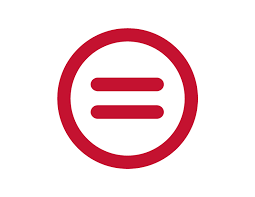ACLU Kentucky hopes to shine light on juvenile justice reform
LOUISVILLE, KY (WAVE) – The ACLU of Kentucky is hoping to debunk myths and educate the community on juvenile justice reform.
“The main important thing is to figure out what policies we are creating and how they impact youth of color,” Keturah Herron, the ACLU of Kentucky Field Coordinator, said.
On Tuesday, the ACLU of Kentucky opened the door to discuss juvenile justice reform during a six-part series at the Louisville Urban League.
“[We want people] to really understand what’s happening in our juvenile justice system,” Herron said. “We need those who are directly impacted to tell their story. I always know and believed that the ones who are closest to the problem are the ones who are able to help fix the problem.”
Deandrae Hughes has been through the juvenile justice system. He said it started out as truancies in school.
“It was because of family problems,” he said. “My auntie died and her son was trying to take care of me the best way he knew how. He was only 21. And I was just nine years old.”
He said from nine until 16, it was tough for him to go to school. Then at 16, he was put into foster care.
“A lot of the troubles that the youth face is from a traumatized past. They don’t know nothing else,” Hughes said. “So the court system operates on a place of — they should know better. But how if no one told them? So that’s why I’m here.”
The six-week series will touch on the court process, probation and detention, legislative process, resources for youth and police in schools.
On Tuesday, the Jefferson County Court Designated Workers office talked about diversion in the juvenile justice system. Court Designated Workers are available 24 hours a day, seven days a week. They process juvenile complaints against individuals under the age of 18.
The hope is to negotiate a diversion agreement with the juvenile to deter youth from getting into further trouble.
Christina Bronner from the Court Designated Workers Office said the diversion agreements last six months. If juveniles complete the agreement, the case is dismissed. If the juvenile does not comply with the diversion agreement, the case is set for formal proceedings.
According to the Court Designated Workers Office, in Jefferson County, 2,888 complaints against juveniles were filed in 2018. Of those complaints filed, there was a county-wide success rate of 84% in the diversion program.
Of those filings in 2018, 812 juveniles were Caucasian, 1,794 were African American, 134 were Hispanic and 149 were other races. Caucasian and African American juveniles had a 85% success rate in the diversion program, Hispanics had a 75% success rate and other races had an 80% success rate.
Herron said an important thing to note is these complaints are not just guns and drug offenses.
“That’s a small population of our system and the one thing I want people to understand is that we are talking about disorderly conduct at school or fights in the community,” Herron explained. “Those are some of the things that funnel in our young people into the system and it’s those things: how can we help fix those issues and those charges?”
Herron and the ACLU, along with community members, are hoping this conversation will help spark more change for youth in the community.
“I think we can do a much better job in connecting our youth to the right resources in the community instead of locking them away and throwing away the key,” Hughes said.
For more information on the Juvenile Justice Community Conversation Series, click or tap here.
Copyright 2019 WAVE 3 News. All rights reserved.
Source: ACLU Kentucky hopes to shine light on juvenile justice reform





